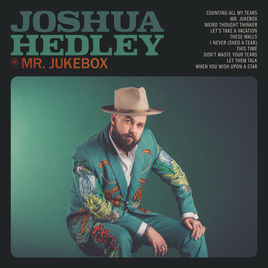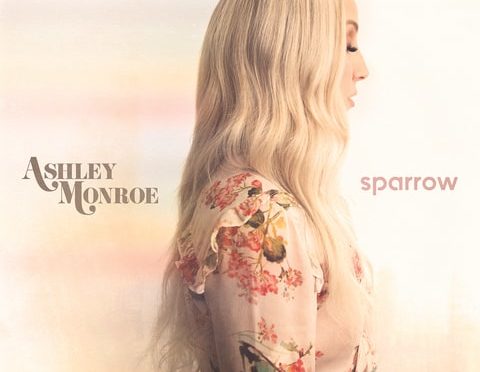Rating: 8.5/10
When we think of beach music and seaside towns, the tendency is to picture touristy, sexy places–sun and sand and bikinis. But there’s another side to this also, coastal towns which remain rural and largely untouched by commercialism. There’s still that feeling you can only get from living by the sea, the way locals tend to live on “island time” and nothing moves in a hurry. But these towns are still tied to the South as well, as much attuned to Southern culture as they are to island life, giving them their own unique flavor and laid-back atmosphere. Port Saint Joe is a town like this in the Florida panhandle on the Gulf coast, and it’s there that Brothers Osborne made this record in Jay Joyce’s home studio. The result is a beach album, but one that feels weathered and familiar rather than commercial and flashy, much like those little coastal towns.
As for Jay Joyce, this is exactly the kind of album where he excels as a producer. Every song flows easily and effortlessly into the next, much like on Travis Meadows’ recent album First Cigarette, a record Joyce also had a hand in producing. It makes this all one cohesive listen, and at ten songs, everything feels like it belongs here, with no unnecessary filler. (Yes, only ten songs on a 2018 mainstream country release, it’s unheard of.) There’s a warm, weathered quality permeating the whole thing which makes it all feel like they recorded this on a beach; it puts you right in that mindset and makes you want to sit by the ocean and drink rum while listening to this album. There are a couple times when the production is too much, like the heavy-handed drums at the beginning of “Weed, Whiskey, and Willie” and the weird electronic sound at the start of “A couple Wrongs Makin’ it Alright,” but mostly, the production is this record’s greatest asset.
And it’s awesome to hear real instruments on a mainstream album–you’ll hear organs, real drums, and guitar licks from John Osborne that just make these songs come to life and separate them from so many similar songs by other artists. “Tequila Again” features some very cool mandolin, giving that song an almost Spanish vibe. “Slow Your Roll” opens with some of those great guitar licks I mentioned, and “Shoot me Straight” is allowed to go on for six glorious minutes, with an outro of guitar shredding and organ flourishes. It’s not a traditional record, but it’s organic and real, and this is what we so desperately need in modern country–actual musicians playing actual instruments and being allowed to actually have solos. That’s the refreshing thing about this record; it may be mostly a beachy, party album, but it doesn’t feel forced or clichéd in any way. It feels like the album Brothers Osborne wanted to make, with real sentiments being sung, and that’s largely due to the original, innovative instrumentation all over this project.
Lyrically, yes, it’s mostly a lighthearted affair, and the party themes run heavily through this. There are weed and alcohol references peppered all over it. The thing about this, though, is that it manages to be both fun and wistful at the same time; that’s partly due to the production, partly due to TJ Osborne’s vocal quality, and partly due to the songs themselves. Lyrical brilliance is not the main focus of this album, but it’s also been a bit underappreciated in terms of the songwriting. The themes are similar, but the lyrics themselves tell a deeper story. “Weed, Whiskey, and Willie” sees the narrator using vices and records, or “bottles and vinyl” as the song says, to get through the hard times in his life. “Tequila Again” acknowledges that he’s actually got a bit of a drinking problem; it’s told in a lighthearted way and says that he’ll keep falling in and out of love with the drink, but it’s self-aware enough to recognize the issue. This goes a long way toward making it a better, smarter song than much of what we see in mainstream country these days. With that in mind, I have to mention “Drank Like Hank,” which is here just to be fun and does name-drop George Jones and Hank Williams. We all know there was more to these legends than their drinking problems, just as there’s more to Willie Nelson than weed, and I can see how people will have a problem with this, but I think it works in light of the other songs. There’s an underlying self-awareness in these tracks, and let’s face it, these legends did drink to excess. This song is catchy and fun, but more than that, it works on the album because the album as a whole is more self-reflective and tells more of a complete story rather than actually being nothing more than a one-dimensional, self-absorbed glorification of partying.
There are some more serious moments sprinkled in here to add weight to the record and also to create more variety and make it less of a party. “I Don’t Remember Me (Before You”) is one of the most interesting in terms of songwriting because at first, it appears to be just a love song saying that he can’t recall his life before this woman came along and changed it for the better. With subsequent listens, the ambiguity becomes clear, and you can see that maybe he’s also sad about literally losing the person he used to be before she came into his life. Perhaps it’s a mix of both, which would be a very accurate portrayal of how relationships can affect us and make us different people. “Pushing up Daisies (Love Alive)” is certainly the best melodically and provides a nice twist on loving someone forever; forever isn’t really a possibility, but this love will go on till they die.
It’s that mortality and feeling of being incredibly small which is just as much a part of sitting by the ocean as rum and Coke. The same waves that crashed to open the album with the easygoing “Slow Your Roll” remain there at the end of the sobering closer, “While You Still Can.” This is not a masterpiece lyrically, but there’s beauty in simplicity, and this song captures that. Instead of just saying live life to the fullest, it reminds us that nothing last forever, a simple yet sobering reality that’s all the more apparent when you’re staring out at the endless sea.
So, overall, I really enjoy this. There’s not a song I’d skip–even “A couple Wrongs Makin’ it Alright,” which has some layered vocals and funky production and will no doubt be the most polarizing here, works for this listener. Everything has a warm, easy, laid-back quality that really fits the beach and party themes, and it’s a joy to hear all these great guitar licks and variety in instrumentation and influences. This is the kind of album we need in 2018, a record that knows what it wants to be, doesn’t take itself too seriously, and just provides a nice, easy listen. TJ Osborne says in the opening line of the whole thing, “take a little break from the rat race,” and ultimately, that’s what Port Saint Joe provides; it’s a break from all the sadness, the divisiveness, the ugliness, the sheer rush of our world right now. It’s the kind of escape you can get sitting on the beach watching the waves crash onto the shore, but we don’t all live near the coast, so Brothers Osborne have brought this album to us. Great record, and one that will likely be one of my favorite albums of 2018.



